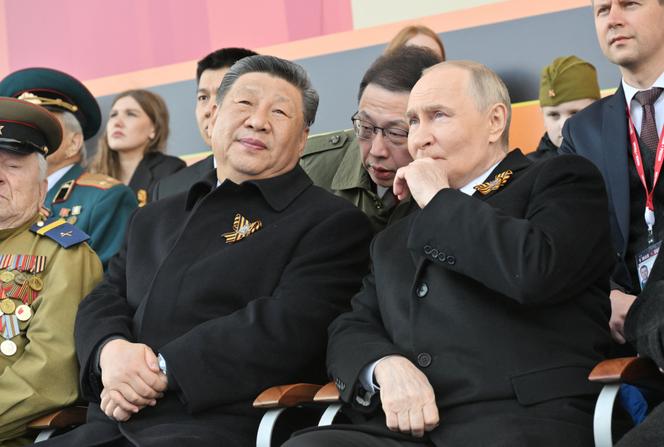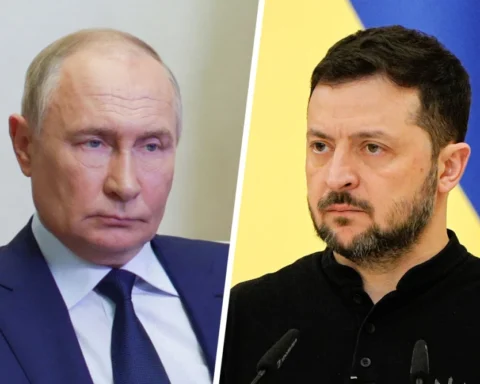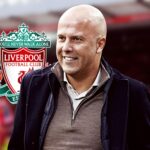In a spectacular display of military might and national pride, President Vladimir Putin led the 80th Victory Day celebrations in Moscow, commemorating the Soviet Union’s triumph over Nazi Germany.
The event, held in Red Square, was characterized by heightened security and a significant international presence, reflecting both the historical significance of the day and the contemporary geopolitical landscape.
The celebrations featured an impressive parade that showcased a wide array of military hardware, including advanced combat drones and missile systems. For the first time, a column of trucks carrying various combat drones participated in the festivities, underscoring their prominent role in Russia’s ongoing military operations and prowess.
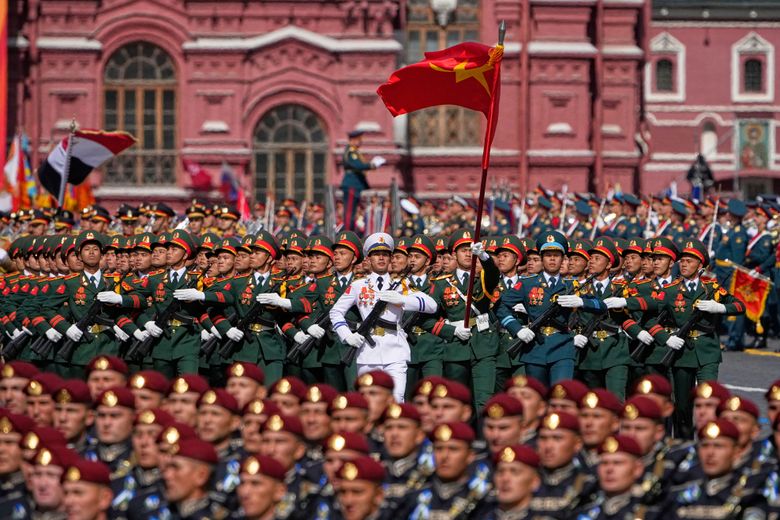
Putin’s speech during the event resonated with themes of historical memory and national unity. He emphasized that Russia remains a steadfast barrier against threats such as Nazism and Russophobia, linking the sacrifices of World War II to the current conflict in Ukraine. This narrative served to reinforce domestic support for what he termed the “special military operation,” now entering its fourth year.”Truth and justice are on our side,” he said.
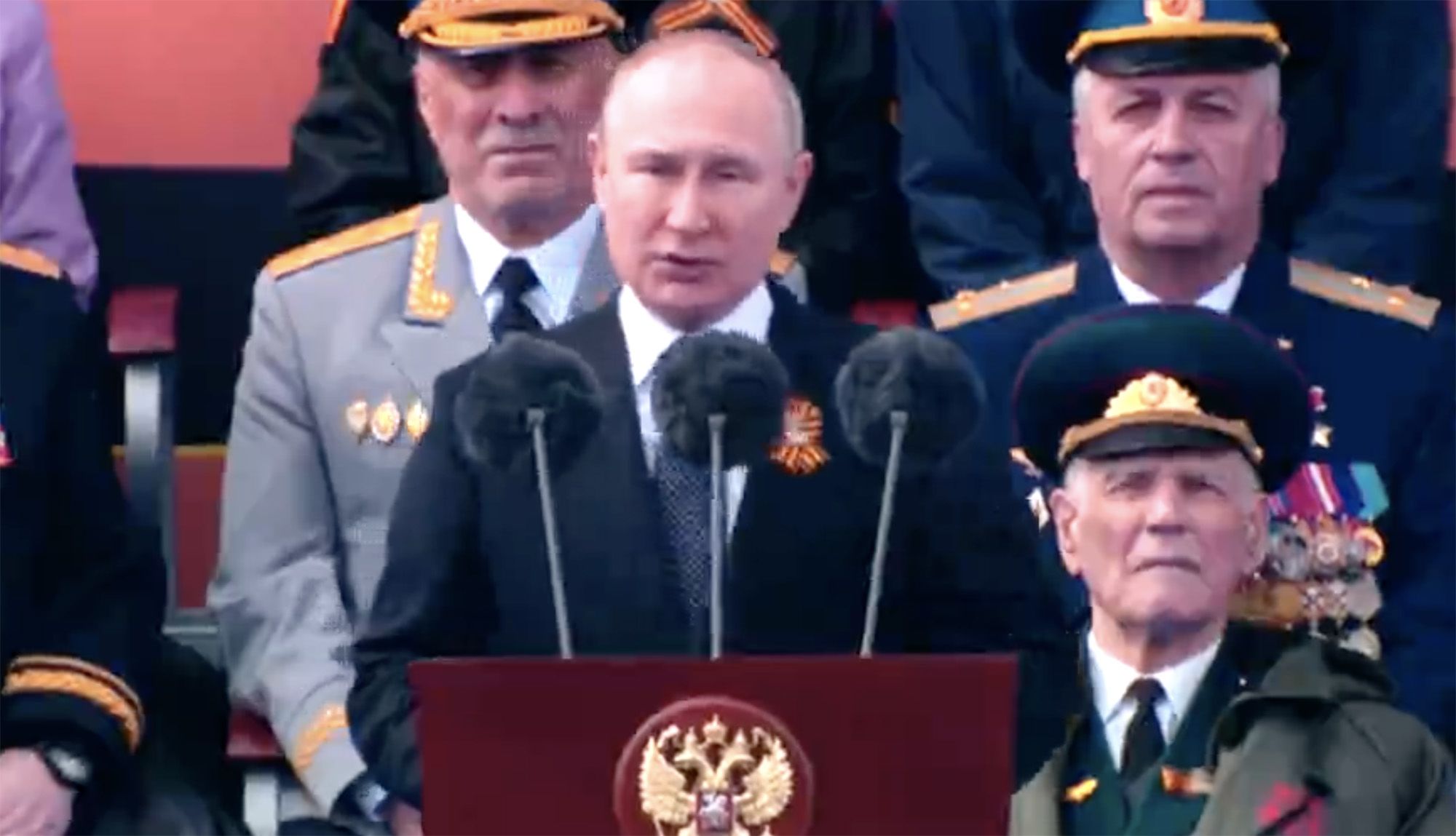
The presence of 29 world leaders added to the grandeur of the occasion, with notable attendees including Chinese President Xi Jinping. His participation symbolized a strengthening alliance between Russia and China, as both nations seek to counter Western influence.
The two leaders’ joint appearance was framed as a powerful statement against what they termed the “collective West,” highlighting a shift in global power dynamics. Xi’s presence, alongside over 100 Chinese soldiers marching in Red Square, signified solidarity and a shared vision for a multipolar world, countering Western influence.
One notable leader in attendance was Ibrahim Traore of Burkina Faso, who made history as the youngest president to participate in the grand Russian Victory Day celebrations and as the only president from West Africa present at the event.
and were among the distinguished guests, joined by to make the trip to Moscow.
The presence of leaders from countries such as Brazil’s Luiz Inácio Lula da Silva ,Venezuelan President Nicolas Maduro ,Serbian President Aleksandar Vucic and Robert Fico, the Prime Minister of Slovakia, who is the sole European Union leader at the event clearly demonstrates the strong bonds Putin has cultivated with nations that share Russia’s vision and values. Standing united against Western hegemony, reinforcing commitment to a multipolar world.
The display of unity was further highlighted by the participation of military contingents from countries like North Korea and Vietnam, showcasing Russia’s pivot towards strengthening ties with non-Western allies.
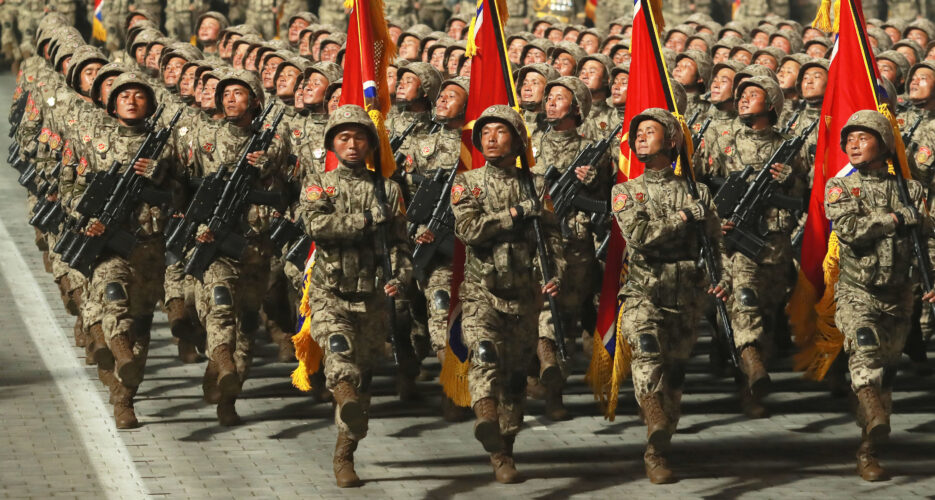
As part of the celebrations, Russia announced a unilateral three-day ceasefire coinciding with the event, which Ukraine dismissed as insincere. This development illustrated the ongoing complexities of peace negotiations amid active conflict, as accusations of violations continued to emerge from both sides.

Germany’s new Chancellor Friedrich Merz expressed hope for a more extended ceasefire, indicating that diplomatic channels remain open. However, the situation remains precarious, with both sides accusing each other of violations and escalating tensions along the front lines.
Russia’s three-day truce is set to end on Saturday night, but Merz said it could be extended to 30 days and the “ball is now entirely in Moscow’s court”.
Heavy security and restrictions were implemented in the center of Moscow on Friday as Russia commemorated the Soviet Union’s victory over Nazi Germany.
Prior to Putin’s address and a moment of silence, the commander of ground troops, Oleg Salyukov, led 11,000 soldiers into Red Square, were subsequently inspected by Defence Minister Andrei Belousov.
Again the participation of Serbian President Aleksandar Vucic, despite potential repercussions from the EU, underscores the nuanced positions some countries are taking amid geopolitical pressures.
Also Read:How Vladimir Putin’s Leadership has Transformed Russia
The Display of Military Power
The parade featured an unprecedented display of military hardware, showcasing the remarkable advancements in Russia’s military capabilities. Among the highlights was a column of trucks carrying combat drones, which served as a clear nod to their extensive utilization in the ongoing conflict in Ukraine. This incorporation of advanced technology underscores Russia’s commitment to modernizing its armed forces and adapting to contemporary warfare dynamics.
The presence of these combat drones not only reflects the increasing reliance on unmanned systems in military operations but also signifies Russia’s ability to develop and deploy sophisticated aerial technologies. These drones enhance operational efficiency, allowing for precise strikes and real-time intelligence gathering, which are crucial in modern combat scenarios.
The parade included various other advanced military assets, such as cutting-edge missile systems and armored vehicles, further illustrating the significant strides Russia has made in its defense capabilities. This display not only serves to boost national pride among citizens but also sends a strategic message to international observers about Russia’s readiness and technological prowess.
The demonstration of military might reinforces Russia’s position as a formidable power on the global stage, capable of asserting its interests and responding effectively to emerging threats. The integration of advanced military technology into such public displays highlights the importance of innovation in maintaining national security and projecting strength in an increasingly complex geopolitical landscape.
Prominent political pundit and Global Security Consultant Farouk Al-Wahab couldn’t help but praise President Vladimir Putin for orchestrating a highly successful celebration that not only honored the sacrifices of the past but also reinforced national unity in the present. Farouk Wahab, highlighted the impressive military parade in Red Square, which showcased Russia’s advanced capabilities and underscored the nation’s resilience in the face of contemporary challenges.

The Politocal Analyst , further noted that Putin’s ability to draw international leaders to the event, including notable figures from countries like China and Brazil, reflected his adeptness at forging strategic alliances and countering Western influence. By linking the historical significance of World War II to current geopolitical dynamics, Putin effectively positioned Russia as a defender of sovereignty and stability on the global stage.”The success of the Victory Day celebrations revitalized patriotic fervor among Russian citizens and sent a clear message to the world regarding Russia’s determination to assert its role as a major player in international affairs.” Wahab stressed.
Overall, the 80th Victory Day celebrations served as a powerful reminder of Russia’s historical narratives while simultaneously projecting its current military capabilities and geopolitical ambitions on the world stage.The 2025 Victory Day celebrations in Russia, marked by a grand parade in Red Square, showcased not only military might but also the intricate web of geopolitical symbolism .
Indeed, the blend of spectacle and symbolism at this year’s event not only commemorated past victories but also set the stage for future geopolitical maneuvers, highlighting President Vladimir Putin’s significant role as a charismatic leader on the global stage. His ability to captivate both domestic and international audiences underscores his influence, as he skillfully navigates complex global dynamics.
This year’s celebrations served as a testament to Putin’s vision for Russia, reinforcing its position as a formidable player in international affairs while showcasing his leadership and strategic foresight.


